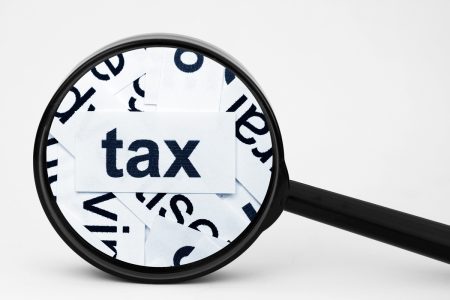What You Need to Know About Discharging Tax Debt in Bankruptcy
:
Filed under: Taxes
 If you are struggling with tax debt, you may be considering bankruptcy as a way to find relief from your financial obligations. Fortunately, filing for bankruptcy can indeed help you discharge some or all of your tax debt. But before you do, it’s important that you understand the basics of how this process works and what types of tax debt can be wiped out in bankruptcy. Let’s take a closer look.
If you are struggling with tax debt, you may be considering bankruptcy as a way to find relief from your financial obligations. Fortunately, filing for bankruptcy can indeed help you discharge some or all of your tax debt. But before you do, it’s important that you understand the basics of how this process works and what types of tax debt can be wiped out in bankruptcy. Let’s take a closer look.
<h2>Types of Tax Debt That Can Be Wiped Out in Bankruptcy</h2>
Generally speaking, most tax debts are eligible for discharge under Chapter 7 or Chapter 13 bankruptcy. This includes income taxes, payroll taxes, gift taxes and estate taxes that meet certain criteria. Notably, the following conditions must be met in order to qualify for discharge:
- The taxes must have been due at least three years before the date of your bankruptcy filing;
- You must have filed a return for the respective taxes at least two years prior to filing;
- The IRS must not have assessed the taxes within 240 days before filing; and
- The debt cannot be related to fraud or willful evasion.
It’s worth noting that if any of these criteria are not met (for example, if you failed to file returns on time), then those particular debts may still qualify for discharge through Chapter 13 bankruptcy proceedings. However, this is not always guaranteed so it’s best to consult with an experienced attorney first before attempting this route.
<h2>Tax Lien Considerations</h2>
In addition to understanding which types of tax obligations can be discharged in bankruptcy proceedings, it’s also important to consider how a tax lien might affect your ability to receive a discharge on certain liabilities—even if they meet all of the criteria listed above. Generally speaking, if there is an active federal lien on your assets when you file for bankruptcy then any associated debt will remain untouched by the court-ordered discharge provisions outlined above. So it’s important that you speak with a qualified lawyer about whether or not any such liens exist on your property prior to filing for bankruptcy protection from creditors—especially if you hope to wipe out existing tax liabilities as part of that process.
When done correctly and under appropriate circumstances, discharging tax debt in bankruptcy proceedings can provide much-needed relief from overwhelming financial obligations without having to face potentially crippling penalties like wage garnishment or other collection enforcement measures pursued by governmental entities like the Internal Revenue Service (IRS). However, there are many considerations involved when attempting this process which makes consulting with an experienced attorney beforehand essential. By working with a Dallas bankruptcy lawyer, you can ensure that any efforts made toward discharging tax debt will be successful and ultimately result in a more positive financial future overall.







